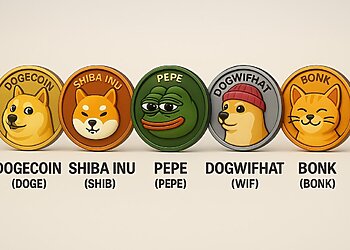Bitcoin is a decentralized digital currency that allows people to send and receive money without relying on banks or governments. Unlike traditional currencies, Bitcoin operates on a peer-to-peer network, meaning transactions happen directly between users.
How Bitcoin Works
Bitcoin transactions are recorded on a blockchain, a public ledger that ensures transparency and security. Each transaction is verified by a network of computers called miners, who solve complex mathematical problems to add new transactions to the blockchain. This process, known as mining, also creates new Bitcoins.
Imagine you want to send 1 Bitcoin to your friend. Instead of using a bank, you initiate the transaction through your Bitcoin wallet. The network verifies the transaction, and once confirmed, Bob receives the Bitcoin in his wallet. The transaction is permanently recorded on the blockchain.
Key Features

- Decentralized: No central authority controls Bitcoin.
- Limited Supply: Only 21 million Bitcoins will ever exist, making it scarce like gold.
- Secure & Transparent: Transactions are encrypted and publicly recorded.
- Global & Fast: Bitcoin can be sent anywhere in the world instantly.
Check out this beginner-friendly video. Bitcoin is often called “digital gold” because of its store-of-value properties. While its price can be volatile, many investors see it as a hedge against inflation and traditional financial systems.
It’s important to note that cryptocurrency remains an unregulated digital asset, not recognized as legal tender, and is subject to market risks. The information provided should not be considered financial or trading advice. CryptoNow holds no responsibility for any investment decisions made based on the content of this article.










